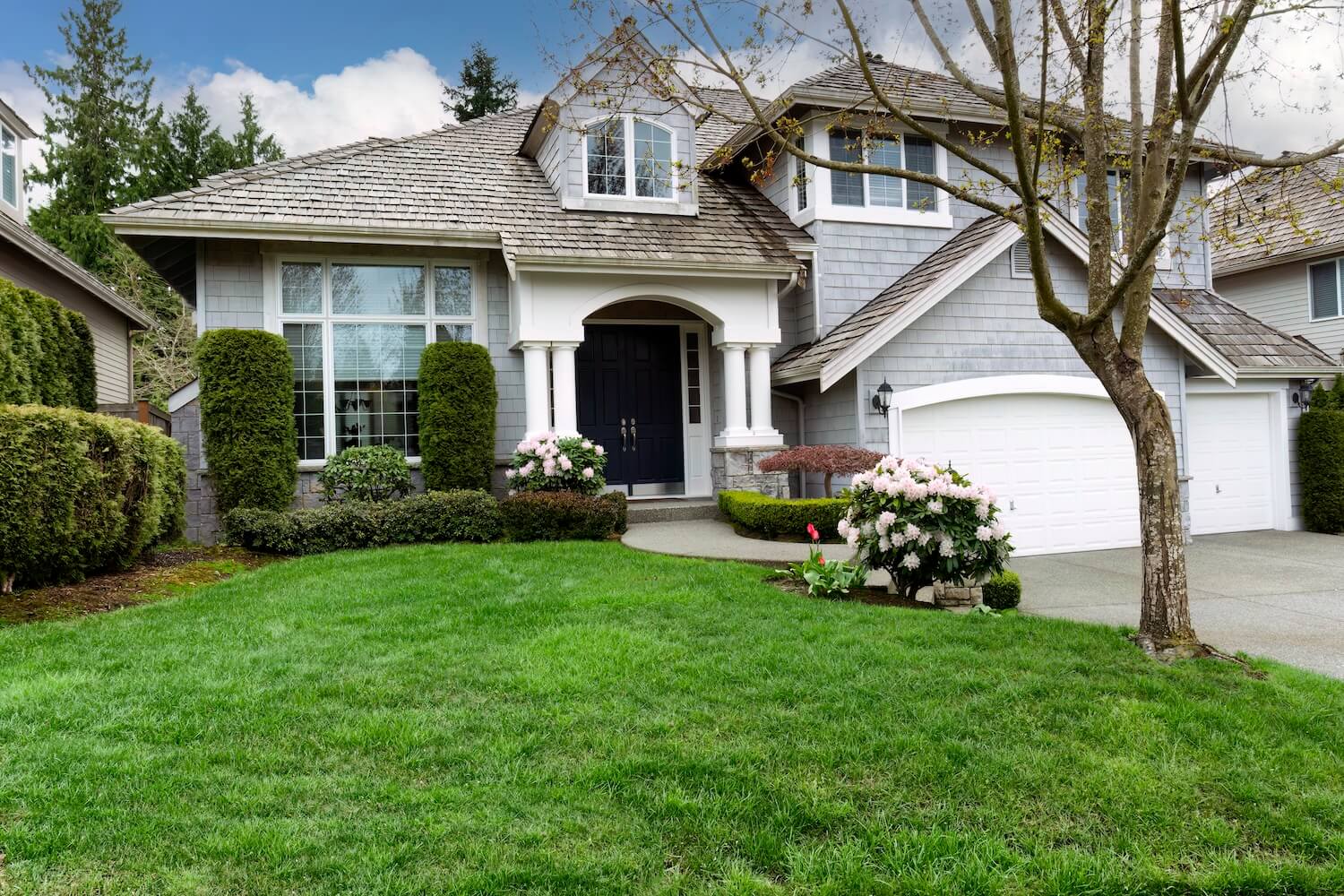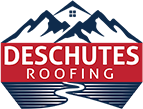In the realm of real estate, first impressions are everything. Curb appeal—the initial attractiveness and charm of a property when viewed from the street—plays a pivotal role in capturing potential buyers’ interest and setting the stage for favorable negotiations. Among the myriad elements that contribute to curb appeal, the condition and aesthetic appeal of the roof stand out as critical factors that can significantly influence a buyer’s perception of a home’s overall value and desirability.
This comprehensive guide delves into the multifaceted impact of roofing on the saleability of your home, covering everything from choosing the right roofing materials to implementing maintenance strategies and understanding the financial work implications.

The Importance of Roofing in Home Curb Appeal
The roof serves as more than just a protective shield; it is a defining feature that contributes to the character and visual appeal of your home’s exterior. Potential buyers often form their initial impressions based on the exterior presentation of a property, making a well-maintained and aesthetically pleasing roof crucial in attracting interest and commanding a higher resale value. A roof that complements the architectural style of the home, exhibits quality craftsmanship and boasts visual appeal can significantly enhance curb appeal and set your property apart in a competitive real estate market.
Types of Roofing Materials
Choosing the right roofing material is a critical decision that impacts not only the aesthetic appeal of your home but also its durability, maintenance requirements, and energy efficiency. Here’s an in-depth look at popular roofing materials:
Asphalt Shingles
Among the most commonly used roofing materials, asphalt shingles are valued for their affordability, versatility, and ease of installation. Available in a wide array of colors and styles, including architectural shingles that mimic the look of cedar shakes or slate, asphalt shingles offer durability against various weather conditions and require minimal maintenance.
Metal Roofing
Recognized for its longevity and exceptional durability, metal roofing has gained popularity for its energy efficiency and modern aesthetic appeal. Available in materials such as aluminum, steel, and copper, metal roofs provide superior protection against elements like wind, hail, and fire while reflecting solar radiant heat to reduce cooling costs in warmer climates.
Tile Roofing
Often associated with Mediterranean, Spanish, or Southwestern architectural styles, tile roofing exudes timeless elegance and durability. Made from materials such as clay, concrete, or synthetic compositions, tile roofs are renowned for their ability to withstand extreme weather conditions, resist fire, and maintain color vibrancy over decades with minimal maintenance.
Wood Shakes
Prized for their natural beauty and rustic charm, wood shakes or shingles enhance the aesthetic appeal of homes with traditional or cottage-style architecture. Typically crafted from cedar, redwood, or pine, wood shakes offer natural insulation properties and age gracefully, developing a distinctive silver-gray patina over time. Regular maintenance, including periodic treatments to prevent moss or algae growth, is essential to prolong the lifespan and beauty of wood roofs.
Each roofing material presents unique benefits and considerations in terms of cost, maintenance, environmental impact, and compatibility with architectural styles. Homeowners should carefully weigh these factors to select a roofing material that aligns with their aesthetic preferences, budgetary constraints, and long-term maintenance goals.
Assessing Roof Condition Before Selling
Before listing your home for sale, conducting a thorough assessment of the roof’s condition is crucial to identifying potential issues that could affect the sale process. Engage a qualified roofing professional or inspector to conduct a comprehensive evaluation, checking for signs of wear, damage, or structural issues such as sagging or improperly installed flashing. Addressing these issues preemptively not only enhances the roof’s functionality and aesthetic appeal but also instills confidence in prospective buyers regarding the property’s overall maintenance and structural integrity.
Enhancing Roofing Appeal
Enhancing the aesthetic appeal of your roof can significantly elevate your home’s curb appeal and marketability. Consider the following strategies to maximize the visual impact of your roof:
-
Color and Style Selection: Choose a roofing color and style that complements the architectural design of your home and harmonizes with the surrounding landscape. Neutral tones like shades of gray, brown, or slate are versatile choices that appeal to a broad range of tastes, while bold colors or distinctive textures can create a memorable visual statement when appropriately integrated with the home’s exterior palette.
-
Architectural Details: Incorporate architectural details such as dormers, gables, or skylights to enhance the roof’s visual interest and functionality. These features not only add character to the home’s exterior but also contribute to its overall functionality and interior illumination, enhancing its appeal to prospective buyers seeking distinctive architectural elements.
-
Gutter Systems and Roof Accessories: Ensure that gutters, downspouts, and roof accessories such as chimneys or vents are in good condition and complement the roof’s design aesthetic. Functionality is equally important, as properly maintained gutters and accessories contribute to the roof’s performance in diverting rainwater away from the home’s foundation and preventing potential water damage or erosion.
Residential Roof Maintenance Tips for Home Sellers
Regular maintenance is essential to preserving the integrity and longevity of your roof, safeguarding its value and attractiveness to potential buyers. Implement a proactive maintenance regimen that includes the following practices:
-
Scheduled Inspections: Arrange for periodic inspections by a qualified roofing professional to assess the roof’s condition, identify any emerging issues, and recommend appropriate repairs or maintenance measures.
-
Cleaning and Debris Removal: Regularly remove debris such as leaves, branches, or moss from the roof’s surface and gutters to prevent clogging and potential water damage. Use caution when cleaning to avoid damaging roofing materials or compromising their protective coatings.
-
Repairing Damage Promptly: Address minor issues such as damaged shingles, cracked flashing, or loose seals promptly to prevent them from escalating into more extensive repairs or compromising the roof’s performance during the selling process.
-
Professional Maintenance Services: Consider investing in professional roof maintenance services, such as annual inspections or seasonal cleanings, to ensure comprehensive care and maintenance of your roof. Professional services not only enhance the roof’s performance and longevity but also provide peace of mind to prospective buyers regarding the home’s upkeep and maintenance history.
Financial Benefits of Quality Residential Roofing Work
Investing in high-quality roofing materials and proactive maintenance practices can yield significant financial benefits when selling your home. Consider the following financial advantages:
Increased Property Value
Upgraded roofing can enhance your home’s resale value by improving its overall curb appeal and marketability. Potential buyers are often willing to pay more for a home with a well-maintained, visually appealing roof that reflects quality craftsmanship and durability.
Energy Efficiency Savings
Energy-efficient roofing materials, such as metal roofs with reflective coatings or tile roofs with natural thermal insulation properties, can reduce heating and cooling costs for both current and future homeowners. Energy savings contribute to the home’s financial appeal and may qualify for tax incentives or rebates from local utility companies promoting energy-efficient home improvements.
Insurance Premium Reductions
Certain roofing materials, such as impact-resistant shingles or fire-resistant tiles, may qualify for lower insurance premiums due to their ability to withstand weather-related damage or reduce fire risk. Consult with your insurance provider to determine potential savings and incentives associated with installing resilient roofing materials that enhance the home’s safety and durability.
Environmental Considerations
In an era of heightened environmental awareness and sustainability, eco-friendly roofing options are increasingly valued by homeowners and prospective buyers alike. Consider the following environmentally sustainable roofing options:
-
Recyclable Materials: Choose roofing materials manufactured from recycled content or that are fully recyclable at the end of their lifespan, such as aluminum, steel, or composite shingles. Recyclable materials reduce landfill waste and support sustainable building practices that prioritize resource conservation and environmental stewardship.
-
Energy Efficiency: Opt for roofing materials with high solar reflectance and thermal emittance ratings, such as cool roofs or green roofs, to reduce the home’s energy consumption and urban heat island effect. Energy-efficient roofing solutions contribute to lower greenhouse gas emissions and promote climate resilience while offering long-term cost savings on heating and cooling expenses.
-
Green Certifications: Obtain green building certifications, such as LEED (Leadership in Energy and Environmental Design) or Energy Star ratings, for your roofing upgrades to demonstrate environmental responsibility and enhance the home’s marketability to environmentally conscious buyers. Green certifications validate sustainable building practices and may qualify the property for financial incentives or premium resale values associated with green homes in the real estate market.
Legal and Permitting Work Considerations
Before embarking on any roofing upgrades or repairs, familiarize yourself with local building codes, zoning regulations, and permitting requirements applicable to your jurisdiction. Compliance with regulatory standards ensures the safety, integrity, and legal compliance of your roofing improvements while protecting against potential liabilities or legal disputes during the home-selling process. Consider the following legal and permitting considerations:
-
Building Code Compliance: Ensure that roofing materials, installation methods, and structural modifications comply with local building codes and regulatory standards governing roof construction, wind resistance, fire safety, and environmental impact.
-
Zoning Regulations: Verify zoning ordinances and land use regulations that may impact roofing projects, such as setback requirements, height restrictions, or aesthetic guidelines governing roof design and architectural compatibility within residential neighborhoods.
-
Permitting Requirements: Obtain necessary permits and approvals from local building authorities or homeowners’ associations before initiating roofing improvements or repairs. Permitting ensures regulatory compliance, validates the structural integrity of roofing modifications, and provides documentation of legal compliance for potential buyers during property inspections or due diligence processes.
-
Disclosure Obligations: Disclose all relevant information regarding roofing upgrades, repairs, or permitting history to prospective buyers to ensure transparency and mitigate potential disputes or liabilities related to undisclosed property conditions. Full disclosure of maintenance records, warranty information, and compliance documentation enhances buyer confidence and facilitates informed decision-making during real estate transactions.
Conclusion
In conclusion, the role of roofing in maximizing curb appeal and enhancing the saleability of your home encompasses a comprehensive approach to selecting quality materials, implementing proactive maintenance practices, and understanding the financial and environmental benefits for both current and future homeowners. By investing in aesthetically pleasing, durable roofing solutions that reflect craftsmanship, sustainability, and regulatory compliance, homeowners can significantly elevate the attractiveness and market value of their properties in today’s competitive real estate market.
Consulting with experienced roofing professionals, real estate experts, and environmental consultants can provide invaluable guidance tailored to your specific needs, preferences, and local market conditions. By prioritizing quality roofing upgrades and maintenance initiatives, homeowners can effectively showcase the aesthetic appeal, structural integrity, and long-term value of their homes to prospective buyers seeking distinctive, well-maintained properties in desirable neighborhoods.








